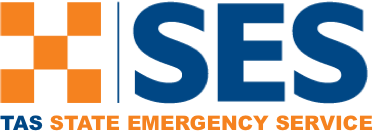Recovery principles

In the Australian Disaster Resilience Handbook (AIDR)- Community Recovery-handbook 2, they suggest that Disaster recovery involves a variety of organisations and individuals across government, non-government organisations and the community. The principles are intended to be adopted and used at national, jurisdictional, regional and local levels.
They are guidelines of good practice and should underpin planning and operations within local emergency management frameworks. The National Principles of Recovery include the following, click to reveal:
Successful recovery is based on an understanding of the community context, with each community having its own history, values and dynamics.
Successful recovery is responsive to the complex and dynamic nature of both emergencies and the community.
Successful recovery is community-centred, responsive and flexible, engaging with community and supporting them to move forward.
Successful recovery requires a planned, coordinated and adaptive approach, between community and partner agencies, based on continuing assessment of impacts and needs.
Successful recovery is built on effective communication between the affected community and other partners.
Successful recovery recognises, supports and builds on individual, community and organisational capacity and resilience.
The image depicts: The National Principles for Disaster Recovery: Source: Social Recovery Reference Group 2018
Legislative and Planning Framework
The Legislative and Planning Framework involve the following:
- The Emergency Management Act 2006 sets out the governance of Emergency Management, including the operation of the Ministerial Committee for Emergency Management and the State Emergency Management Committee
- The State Recovery Plan provides a broad scalable framework for recovery that can be tailored to the requirements of each emergency event
- Regional and Municipal plans are overseen by Regional and Municipal Committees
- Recovery planning and preparedness is overseen by the State Recovery Committee, a subcommittee of the State Emergency Management Committee
- The State Recovery Committee is responsible for state level preparations, plans and policies for recovery, and is supported by a Recovery Working Group.



Recovery domains
State recovery efforts are managed under five domains, with a State Government agency coordinating recovery functions under each domain. Agencies with functional responsibilities prepare and maintain arrangements to manage the delivery and coordination of relevant recovery functions, including partnerships and support arrangements with NGOs and community groups. Click to reveal the five domains:
Social recovery functions include activities to ensure safety, security and shelter, connections, remembrance, health and psychological wellbeing
Economic recovery functions include actions to develop and deliver relief and recovery measures and facilitate economic advice and financial assistance to businesses
Infrastructure recovery functions include activities to restore utility and transport services, and repair critical infrastructure assets
Environmental recovery functions include activities to protect natural and cultural assets and values, support primary producers, and manage waste, pollution and biosecurity
Cross domain includes whole of government functions such as public appeals, spontaneous volunteers and public communications.
Recovery governance arrangements
Effective coordination, planning and communication is essential. Recovery efforts generally involve all levels of government, including municipal, regional and state emergency management structures, as well as non-government and community organisations. Recovery Governance arrangements is demonstrated in the flow chart below and is reflective in the following text as well:
During an emergency: relief and short term recovery the following occurs:
- State Control Centre-SCC-in control
- Regional Emergency Coordination Centre-RECC-communicates/reports up SCC and down to Muncipal Coordination Centre-MECC
- Regional Social Recovery Team liaises between RECC and MECC.
After an Emergency; long-term recovery (event specific)
- Recovery Task-force or Unit collaborate with the;
- Affected Area Recovery Committees.


